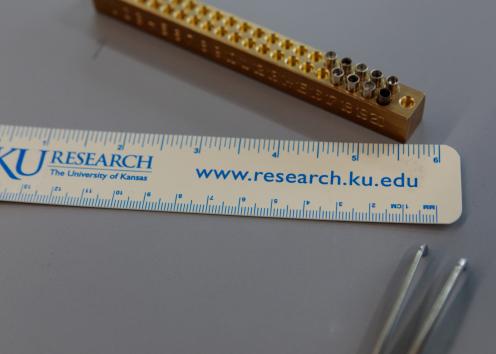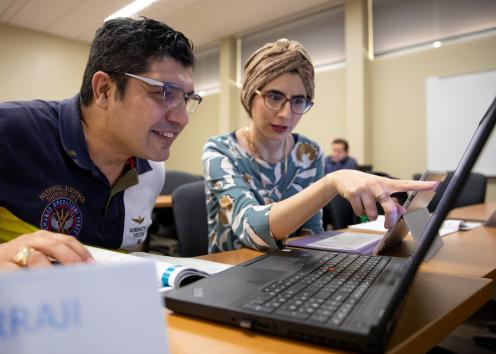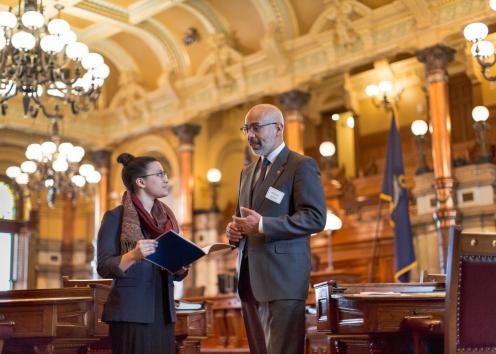Master’s in Educational Administration at KU

Program overview
The master’s in educational administration is a partnership program between Kansas City, Kansas Public Schools (KCKPS) and the University of Kansas. It adheres to the same curriculum as KU’s online master's in educational administration, but with half of the courses taught in person by KCKPS district leaders and the other half taught online by KU faculty. Students select from two program tracks: 1.) building leadership track, or 2.) non-licensure track.
Building Leadership Track
The building leadership track is designed to prepare graduates to serve as principals or in other formal leadership roles. It meets Kansas licensure endorsement requirements and may qualify graduates to obtain a building leadership licensure endorsement in other states as well. The track requires an administrative internship and a final portfolio project developed and submitted during the internship experience. In most states, teacher certification is required before building leadership can be granted.
Note: Licensure can only be obtained if candidates currently have a Master's degree in a related field.
Non-Licensure Track
The non-licensure track is best for educators, consultants, advocates, and others who want to increase their knowledge of educational administration but are not seeking licensure or endorsement. Because this track does not require an internship or practicum experience (as the building leadership track does), it does not lead to teacher, principal or other educational licensure. However, this program will help you develop your leadership skills, build your expertise and strengthen your professional qualifications.
Career Outcomes in Educational Administration
Graduates of the master's in educational administration building leadership track often move forward in their careers as administrators in their school, including roles such as department heads, assistant principals, principals, or athletic directors. These positions hold a unique place in the educational ecosystem. Although your daily interactions with students may fluctuate, your work directly affects their experience and outcomes. Typical work includes, but is certainly not limited to:
- Oversight of daily school operations and athletic programs
- Evaluation of staff and faculty
- Implementation of district curriculum and assessment initiatives
- Supporting special education plans
- Working with student behavior
- Connecting with parents, faculty, and students
- Analyzing school data for continuous improvement
Statistics





